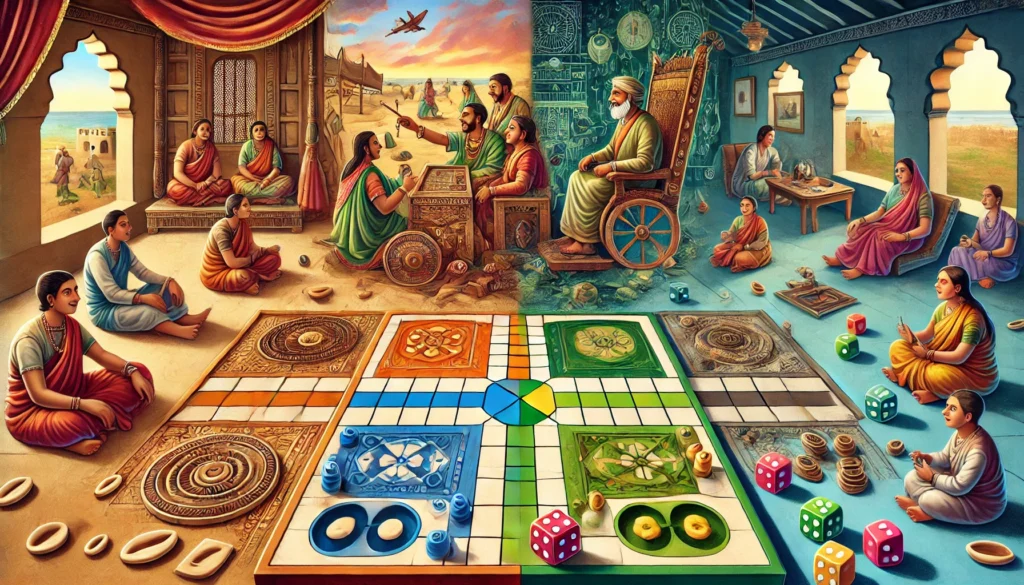
The simple yet profound phrase “I play” resonates across cultures, languages, and history. In Latin, the word ludo captures this spirit of playfulness. Derived from ludere, meaning “to play,” this word not only represents the act of playing but also carries a rich history tied to games, learning, and even life itself. In ancient Rome, ludi referred to games, festivals, and public spectacles—moments where society came together to celebrate, compete, and enjoy shared experiences.
The connection between play and humanity is epitomized in the board game Ludo, a game whose name draws directly from this Latin root. Ludo has its origins in the ancient Indian game of Pachisi, which dates back thousands of years. It was played on cloth boards, with cowrie shells as dice, and involved strategy, chance, and social interaction. When Pachisi reached the West in the 19th century, it was adapted into what we now know as Ludo—a simpler, more accessible version of the game, featuring a distinct cross-shaped board and iconic tokens.
The name Ludo itself carries a timeless appeal. It isn’t just a game; it’s a declaration of joy, interaction, and the universality of play. The game became a household favorite, bringing people of all ages together around the table. Its simplicity belies the deep strategic opportunities it offers, making it both approachable for children and engaging for adults.
For me, Ludo is more than a nostalgic reminder of childhood—it’s a reflection of what play truly means. When we play, we connect. We test our wits, take risks, and celebrate our victories, however small. From the ancient streets of Rome to modern living rooms, the act of playing reminds us of the joy of being human. The phrase “I play” (Ludo) isn’t just a statement—it’s a philosophy that has inspired countless games, including my own.
So, here I stand, embracing this universal call to play, to create, and to share the joy that has echoed across centuries. “I play,” and through play, I find inspiration, connection, and fulfillment.

